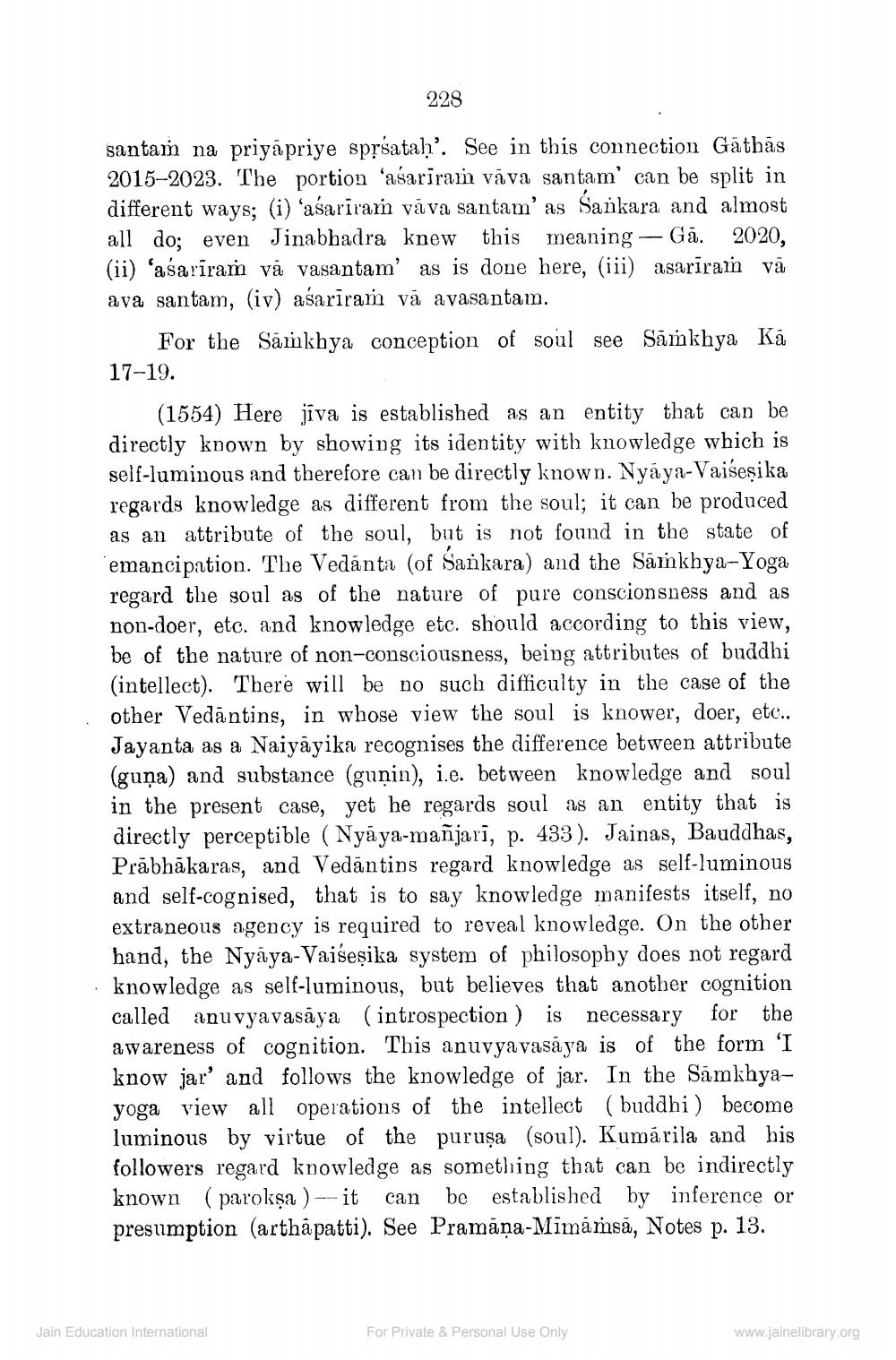________________
228
santam na priyapriye sprśatah'. See in this connection Gathas 2015–2023. The portion ‘aśarīram vāva santam' can be split in different ways; (i) ‘aśarīram vă va santam'as Sankara and almost all do; even Jinabhadra knew this meaning — Gā. 2020, (ii) 'aśarīram vă vasantam'as is done here, (iii) asarīram và ava santam, (iv) asariram vă avasantam.
For the Samkhya conception of soul see Sāmkhya Ka 17-19.
(1554) Here jiva is established as an entity that can be directly known by showing its identity with knowledge which is self-luminous and therefore can be directly known. Nyaya-Vaišeşika regards knowledge as different from the soul; it can be produced as an attribute of the soul, but is not found in the state of emancipation. The Vedanta (of Sankara) and the Samkhya-Yoga regard the soul as of the nature of pure conscionsness and as non-doer, etc. and knowledge etc. should according to this view, be of the nature of non-consciousness, being attributes of buddhi (intellect). There will be no such difficulty in the case of the other Vedāntins, in whose view the soul is knower, doer, etc.. Jayanta as a Naiyāyika recognises the difference between attribute (guņa) and substance (gunin), i.e. between knowledge and soul in the present case, yet he regards soul as an entity that is directly perceptible (Nyāya-mañjarī, p. 433). Jainas, Bauddhas, Prābhākaras, and Vedāntins regard knowledge as self-luminous and self-cognised, that is to say knowledge manifests itself, no extraneous agency is required to reveal knowledge. On the other hand, the Nyāya-Vaišeşika system of philosophy does not regard knowledge as self-luminous, but believes that another cognition called anuvyavasāya (introspection ) is necessary for the awareness of cognition. This anuvyavasáya is of the form 'I know jar' and follows the knowledge of jar. In the Sāmkhyayoga view all operations of the intellect ( buddhi) become luminous by virtue of the puruşa (soul). Kumárila and his followers regard knowledge as something that can be indirectly known (parokşa ) --- it can be established by inference or presumption (artha patti). See Pramāņa-Mimāmsā, Notes p. 13.
Jain Education International
For Private & Personal Use Only
www.jainelibrary.org




